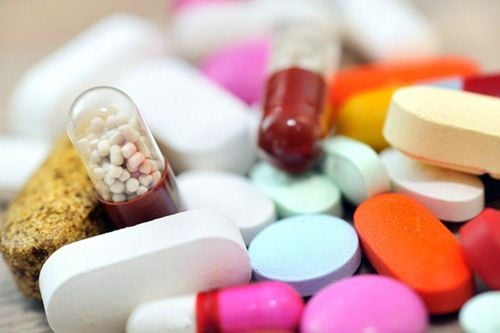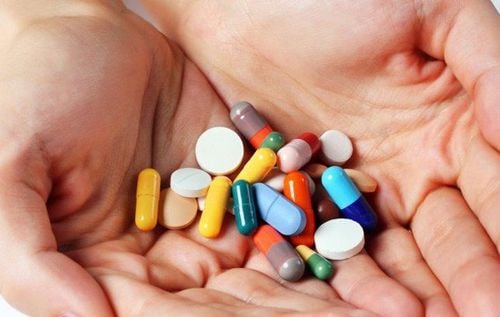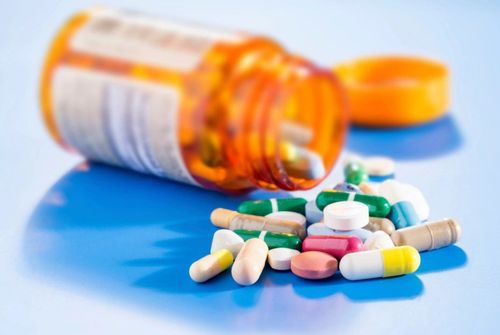This is an automatically translated article.
The article was professionally consulted by MSc Do Thi Hoang Ha - Doctor of Biochemistry, Laboratory Department - Vinmec Hai Phong International General HospitalNitrates are derived from metabolites found in nutrients, which are a by-product of nitrogen when excreted in the urine. However, nitrate in the urine will rapidly convert to nitrite if Gram-negative bacteria such as Klebsiella and E.coli are present, when the urine remains long enough in the bladder and the nitrate levels are sufficient for bacteria to convert. convert nitrate to nitrite. It can be said that the presence of nitrite is a sign of a urinary tract infection.
1. What is nitrite?
Nitrites have the same crystalline structure as common table salt, and are used as a preservative for meat products such as bacon, sausages, and sausages. Nitrite and nitrate preservatives often appear on the packaging of products with familiar codes E249 and E251.The biggest advantage of nitrite preservatives is that they can inhibit the growth of bacteria in meat. In addition, when nitrite is combined with myoglobin in fresh meat (this is a pigment commonly used to give meat color), it will form a new compound called nitrosomyoglobin, keeping the meat color more eye-catching. when processed at high temperatures, and enhances the flavor of the meat.
Although nitrite has the advantage of preserving meat very well, if used in excess of the allowed nitrite content for a long time can cause serious health effects, is one of the causes leading to many dangerous diseases. such as liver cancer, rectal cancer, pancreatic cancer, stomach cancer. Nitrite can oxidize hemoglobin in red blood cells to methemoglobin which is unable to transport oxygen and CO2, when nitrite poisoning the body's respiratory function also decreases, causing a feeling of shortness of breath, suffocation, and worse. can cause dizziness and fainting while the body is active.
2. Why does nitrite appear in urine?
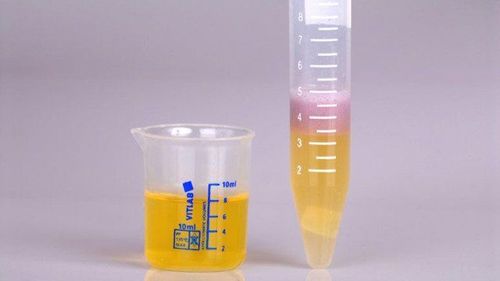
Frequent urination, painful urination, increased urinary pressure Pelvic floor Blood in the urine, painful urination Burning sensation when urinating Patient has lower abdominal pain Cloudy or dark urine Urine with an unpleasant odor If not treated promptly, a urinary tract infection may occur. spread to the upper urinary tract sites such as kidneys and ureters, with typical symptoms such as:
flank or back pain Patient has high fever, chills Feeling nauseous, or vomiting Patient needs If you have a kidney infection, you will need to be hospitalized for intensive examination and treatment, as it is a very serious condition.
3. When should urine nitrite test?
Testing for nitrites may be ordered during pregnancy, before surgery, or when a urinary catheter is needed.In addition, the doctor will ask the patient to take a urine sample to check the nitrite level if there are any suspicious signs related to a UTI. Normally, urine nitrite tests will be ordered in the following situations:
Pregnant woman Patient undergoing a general health check-up Quick monitoring of kidney disease Before the procedure surgery Precise screening for diabetes During patient admission, or when urinary catheterization is required.
4. Conduct a urine nitrite test
To conduct specimen collection, the patient will be provided with a sterile plastic cup by the nurses and instructed to properly collect the sample.Urine test is the best way to check the presence of nitrite in the body, and the amount of protein, white blood cells present in the urine. In addition, it also helps doctors determine the acidity and pH of urine.
However, it should be noted that the presence of certain types of bacteria does not cause nitrite to appear in the urine. Therefore, a negative nitrite test result should not be used to rule out a urinary tract infection, especially when the patient is symptomatic. The conversion of nitrate to nitrite requires a urine contact time of >3.5 hours, so urine samples should be collected first thing in the morning. In addition, it should be noted that if the patient's diet lacks green vegetables, the amount of nitrate in the urine is too low or the amount of bacteria in the urine is too much, it will also lead to a negative nitrite result.
If the urine test results show signs of an infection related to nitrites or white blood cells, the patient will be staged by a doctor and prescribed appropriate treatment. In some cases, this test is also required to determine the type of bacteria that has caused the infection, helping to prescribe the most accurate antibiotic.
5. Treatment
Using antibiotics is the first choice of specialists when detecting the presence of nitrite in the urine of a patient. However, doctors still have to consider more about the patient's medical history before making a prescription.For patients who are pregnant women, special treatment or alternative antibiotics can be used, which are not dangerous during pregnancy.
Patients with UTIs should drink plenty of water during the day to dilute the urine and help eliminate harmful bacteria in the urinary tract. If the infection has spread to the kidneys, the patient will need to be hospitalized for treatment, antibiotics or intravenous fluids.
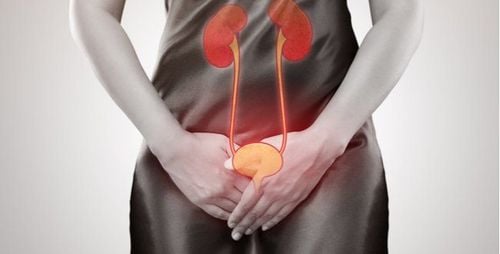
6. Complications
Patients with untreated UTIs in the lower urinary tract may have very few complications. However, if the urinary tract infection spreads to the kidneys, it can cause dangerous complications such as:Chronic kidney disease Leaving scars on the kidneys High blood pressure, body fatigue Sepsis, Kidney failure Especially Pregnant women who show signs of a urinary tract infection caused by nitrites should see a doctor promptly so as not to cause serious effects on the pregnancy such as low birth weight or labor. young.
Thus, nitrite appears in the urine because the main cause is a urinary tract infection. If detected early, the patient only needs to be treated with common antibiotics. But if not diagnosed and treated promptly, UTIs can spread to the kidneys and cause many dangerous complications.
If symptoms of urinary tract infection or kidney infection appear, you should go to reputable medical facilities for timely examination, diagnosis and treatment.
Vinmec International General Hospital is one of the hospitals that not only ensures professional quality with a team of leading medical doctors, modern equipment and technology, but also stands out for its examination and consultation services. comprehensive and professional medical consultation and treatment; civilized, polite, safe and sterile medical examination and treatment space. Customers when choosing to perform tests here can be completely assured of the accuracy of test results.
Please dial HOTLINE for more information or register for an appointment HERE. Download MyVinmec app to make appointments faster and to manage your bookings easily.







